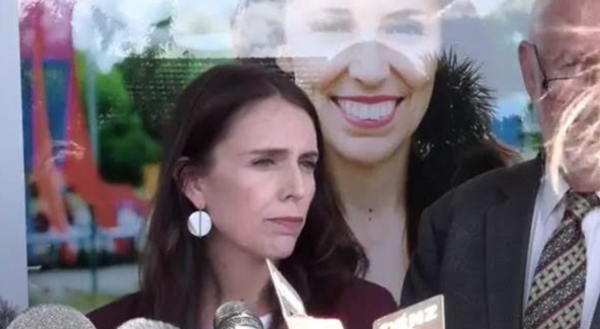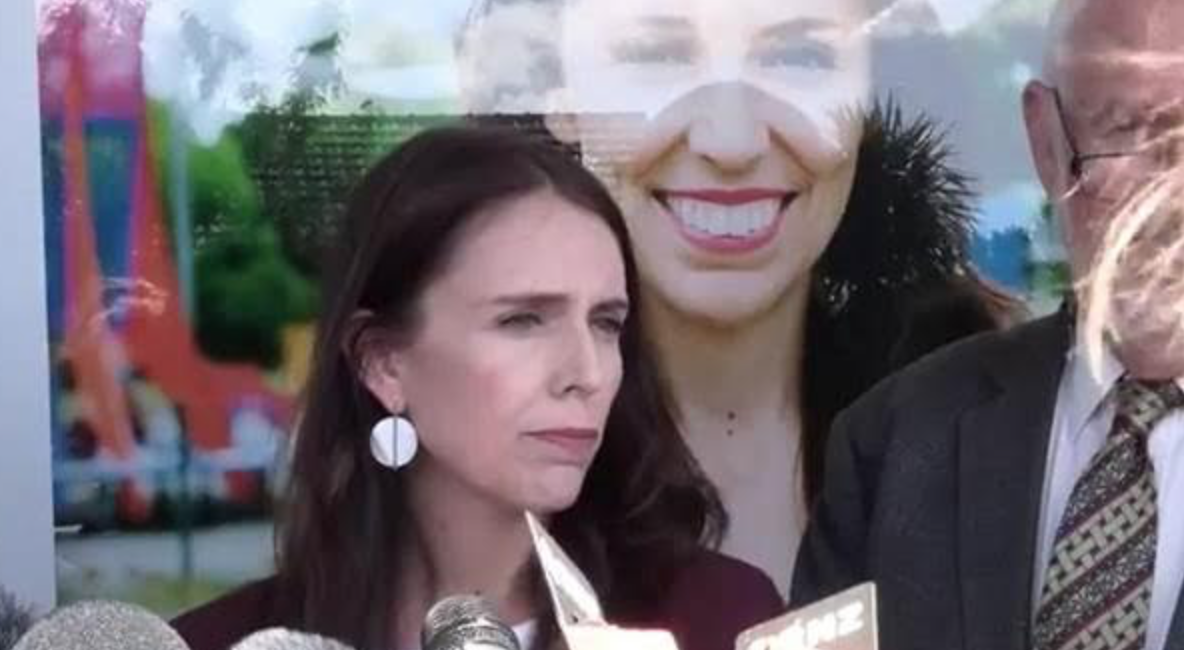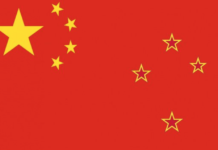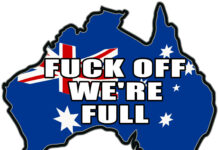
WHY HASN’T ANDREW KIRTON been sacked? By any common-sense definition of accountability, the actions of the Labour Party’s General Secretary offer ample justification for dismissal. Upon learning of the youth wing of the Labour Party’s failure to keep four young people in its care safe, he decided not to alert their parents; not to alert the Police; and not to alert the leader of his party: The Prime Minister, Jacinda Ardern. Surely, at this stage of the scandal, Kirton should be shorter by a head? Why isn’t he?
To understand why the Prime Minister has so far spared her party’s General Secretary, it is necessary to frame a counter-factual account of the incident.
It’s the morning after the party at which four young people have been sexually assaulted or harassed by a 20-year-old attendee at Labour’s 2018 Summer School. The Young Labour organisers have contacted both the Party President and the General Secretary seeking advice about how they should proceed. Andrew Kirton tells them he’s on his way to Waihi and instructs them to do nothing until he arrives. His next call is to the Prime Minister’s Chief-of-Staff, Mike Munro. Having established as clear a picture of the incident as possible, Munro contacts Jacinda Ardern. A small crisis-team is formed to determine the best way of dealing with what is clearly a serious and potentially very damaging incident.
And, therein lies the problem. The number of people involved in an event of this kind begins to grow exponentially the moment state officials become involved. What’s more, every discussion entered into and every decision made by state officials is subject to public discovery under the Official Information Act. (Significantly, decisions made by the senior officials of a private political organisation, such as the New Zealand Labour Party, fall outside the scope of the OIA.)
Once informed of the summer school incident, the Prime Minister would have had no choice except to front it. The scandal would have been hers, regardless of the spectacular twists and turns that inevitably characterise such human dramas – especially after they enter the public realm. It would have been the Prime Minister’s face that people saw on television; the Prime Minister’s words that would, for good or ill, have defined the scandal’s meaning.
Cold political logic would, therefore, dictate that the Prime Minister should be kept in ignorance of such an event for as long as possible. That way, when the story breaks (and in a democratic state, with a free media, the story will always break) she can say – hand on heart – that this is the first she has heard about it. The Prime Minister will have, in the value-free vocabulary of statecraft: “plausible deniability”.
“Plausible Deniability” may be defined as:
“A condition in which a subject can safely and believably deny knowledge of any particular truth that may exist because the subject has been deliberately kept unaware of said truth in order to benefit or shield the subject from any responsibility attached to the knowledge of such truth.”
The first explicit use of the concept may be traced back to the Central Intelligence Agency, whose first Director, Allen Dulles, emphasised the importance of protecting the government of the United States from the consequences of failed agency operations by ensuring its officials are able to offer the American public a “plausible denial”.
As the Wikipedia entry on Plausible Deniability helpfully points out, however, the idea has been around for a lot longer than the CIA:
“[I]n the 19th century, Charles Babbage described the importance of having ‘a few simply honest men’ on a committee who could be temporarily removed from the deliberations when ‘a peculiarly delicate question arises’ so that one of them could ‘declare truly, if necessary, that he never was present at any meeting at which even a questionable course had been proposed’.”
Was this the sort of thinking that prompted Andrew Kirton to keep the Prime Minister out of the loop? Acutely aware of her unblemished political reputation, was it his judgement that the “peculiarly delicate questions” arising out of the summer school scandal, were better dealt with in a setting where the Prime Minister “never was present”?
If the matter could be resolved out of the public spotlight – all well and good. The Party would have dodged some potentially very harmful bullets. If the news media ended-up getting hold of the story – well then, at least none of the bullets would hit the Prime Minister.
This interpretation of events had clearly occurred to senior NZ Herald political journalist, Claire Trevett, as she was summing up the state-of-play of the summer school scandal on 15 March:
“It may have been accidental, but the worker bees [protecting their Queen in the Beehive] have done their job because ‘political management’ was also the only reason not to tell Ardern. Her lack of knowledge now means she does not carry the blame for the initial clumsy handling of it. Ardern is also free from any claims of a cover-up. It is Andrew Kirton who is the worker bee paying the price for his Queen. He fronted on it and it was he who dealt with – or at least made the decision to let Young Labour deal with it without sufficient oversight – after the event.”
And that, almost certainly, is why the Queen in the Beehive is not shouting “Off with his head!” Or, at least – not yet.






Chris, Don Brash says this whole event has been blown out of proportion & even Audrey Young, (the Herald’s right wing political journo) says that Kirton shouldn’t resign, so why are you placing yourself along side Hoskings & his second wife?
Yes we now have the triple H’s right wing nutties writing in the Herald,Hooten,Hosking and Hawkesby. The N.Z. Herald, proudly sponsored by the National party.
Why can’t it just be the honest answer? That Andrew Kirton took the advice of a sexual assault survivors group that told him that keeping the news of the (alleged) sexual assaults limited to as smaller group as possible was in the best interests of those who were (allegedly) sexually assaulted.
The problem with your idea is that what you propose wouldn’t be an honest answer. Kirton himself said
“Kirton said the decision to take this “victim-led approach” was based on the Labour Party’s and Young Labour’s internal processes for dealing with these sorts of incidents. It was not based on advice from experts.” This from
https://www.stuff.co.nz/national/politics/102237347/second-sexual-assault-allegation-surfaces-for-labour-party
The people you are talking about were not contacted until about three weeks after the assaults occurred. Indeed one may wonder just why they were involved at such a late stage except to try and provide a cover for Kirton’s actions and an excuse for his choice. Did he talk to any other such organisation?
Where are all the feminist protestors? Where are all the new (and old) hashtag twitters showing support and solidarity for the victims and outrage at the Labour Party and Youth wing in particular?….*crickets*
Seems outrage is selective after all, only if its not from ‘our side’, JAG is VERY quiet on this so far.
I think most are outraged by this, as they were with Key’s ponytail fetish.
if we followed that line mr trooter gnats would have had to sack most of their party so incompetent were they even after 9 years.
You see, the thing is many people out there consider this to be some big scandal but the reality is it changes nothing. Swing voters like myself couldn’t care less – ‘it’s the economy stupid’!
The only people who think this is a scandal are snow fakes riding high off the American #MeToo movement and harden National supporters who probably turned a blind eye to the Roast Busters.
People like myself, who have an internet connection will continue ignoring NZ’s now tabloid styled media and continue voting for parties who want real reforms regarding housing and cannabis.
Parties such as TOP, ALC and yes .. ACT. A 20 year old putting his hands down teenage girls’ pants – kool … political story ? bro, chur.
Admittedly Andrew Kirton did not handle the camp alleged sexual assault very well at all. With hindsight, it will be something he will be fully aware of now.
However, he is the general secretary of Labour, not police, or a counsellor experienced at handling issues such as this, so was walking in unfamiliar and very sensitive territory as far as his job is concerned. Kirton did what he considered his best in a difficult situation where he was right out of his depth, while also trying to keep within the law at the same time. Something no doubt most of us would do, given the same circumstances.
Given all that, I think Kirton deserves some slack here.
Yes because doing so against the wishes of the victims causes even more damage to the victims.
This is the advice he got and he acted on it thus it can be determined that he acted appropriately – which is more than can be said of you.
May I be so bold as to suggest that it’s possibly not in the best interests of the victims for this to become a highly public scandal? You can see why Kirton might try to handle this delicate personal situation with some gentle discretion?
If this had happened to me when I was 16 there would have been no way I would have wanted my parents or the police to be informed. Having the general secretary of the labour party call up to check on me would be odd and smack of the party just trying to smooth things over. I can’t speak for the victims but I know if that had happened to me then I would much rather just talk to the people who were running the camp at the time.
Maybe Andrew Kirton actually just had the victims interests at heart???
I’ve seen rumblings online about Clark Gayford and an emirates flight. When will that story come out in our “democratic state, with a free media”.
Comments are closed.